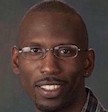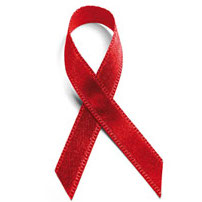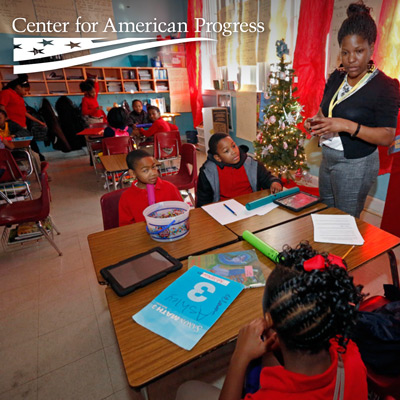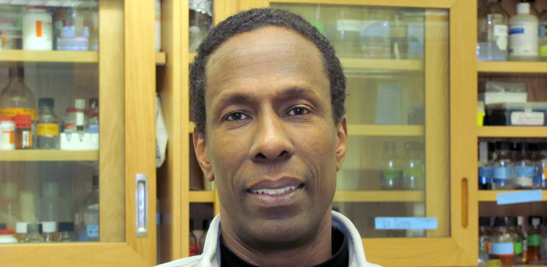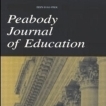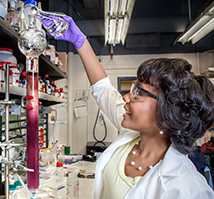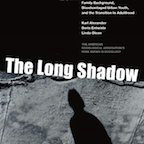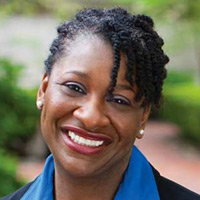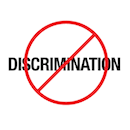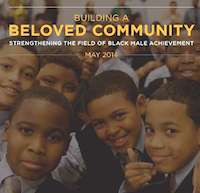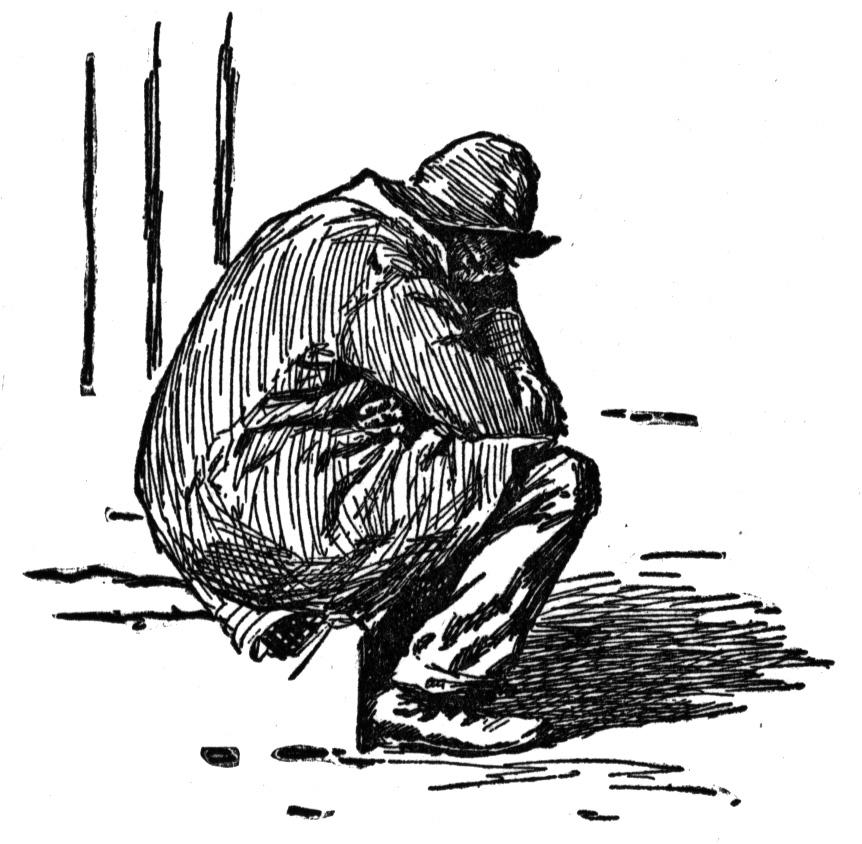Number of Black Applicants to U.S. Graduate Schools From Africa on the Rise
A new report from the Council on Graduate Schools shows that the number of foreign applicants to U.S. graduate schools in 2014 from Africa increased by 9 percent from a year ago. Black acceptances were up 3 percent.
Report Finds That Tensions Between Black Youth and the Police Are a Nationwide Problem
The report from the Black Youth Project at the University of Chicago finds that 54.5 percent of Black youth report being harassed by the police. This is nearly double the rate for youth from other racial and ethnic groups.
University Study Finds Inner-City Youth More Likely to Have Food Allergies
The study found that 10 percent of young inner-city children had food allergies. Peanut allergies were the most common, followed by eggs, and milk. Nationwide about 3 percent of all adults and 6 percent of young children have food allergies.
University of Cincinnati Sociologist Finds Racial Wage Gap Remains for Highly Educated Workers
The study followed a large, multiracial group of eighth graders in 1988 through the year 2000 when most of the participants were 25 years old. When educational and other factors were the same, a racial wage gap of more than $5,700 still existed.
Whites’ Support of Prison Reform Depends on Their Perception of the Black Prison Population
A new study by psychologists at Stanford University finds that when White Americans are informed about the disproportionate number of African Americans in prisons, they are less likely to support prison reform.
A Report Card on Racial Diversity in College Sports
The Institute for Diversity and Ethics in Sport at the University of Central Florida reports that the overall grade for racial hiring practices at colleges and universities rose from 81 points in 2012 to 82.3 points in 2013.
Maintaining Diversity in the Admissions Office Will Be a Challenge
Blacks are underrepresented in the top management levels of admissions offices at U.S. colleges and universities. And a new survey finds that a large percentage of current Black admissions officers want to find jobs in other fields.
Using Monetary Incentives to Improve the Diet of Low-Income Families
A new study led by researchers at New York University finds that vouchers good for fruit and vegetables at farmers' markets in urban areas can significantly improve the diets of low-income minority families.
Academic Study Finds a Large Racial Gap in the Transition Out of Homeownership
Researchers at Rice University in Houston and Cornell University in Ithaca, New York, found that since the 1990s, African American homebuyers were 45 percent more likely than Whites to transition out of homeownership.
Minority Students at Public Charter Schools Less Likely to Engage in Risky Behaviors
The study examined a group of nearly 1,000 students, about half of them who were admitted by lottery to public charter schools and half who were not. The ones admitted to the charter schools were significantly less likely to engage in risky behaviors.
Black Physician Leading the First Phase III Clinical Trial for a Preeclampsia Drug
Alan Tita is a professor in the department of obstetrics and gynecology at the University of Alabama Birmingham. He is a lead investigator for the clinical trial for a drug that may reduce infant and maternal mortality rates.
Blacks Making No Progress in Physics Faculty
In 2012, Blacks were 2.1 percent of all physics faculty members at U.S. colleges and universities, down from 2.2 percent in 2008. Half of all Black physics faculty are at historically Black colleges and universities.
Sub-Saharan African Students at High Schools in the United States
According to the report, in 2013 there were 73,019 students from foreign nations at U.S. high schools. They made up 0.5 percent of all U.S. high schools students. Only 1.7 percent of high school students from foreign lands are from sub-Saharan Africa.
Duke Study Finds a Weight Management Program Can Reduce Depression Among Black Women
A new study by researchers at Duke University finds that an intervention program aimed at helping African American women maintain their weight also significantly reduced depression among participants.
University of Cincinnati to Study Effects of Lead Exposure on African American Women
The study is part of the long-term Cincinnati Lead Study that has followed 376 people who were born in high-risk areas of Cincinnati between 1979 and 1984.
In Clinical Trials, New Drug for Sickle-Cell Disease Shows Promise
The compound was originally developed by a team of researchers at the Institute for Structural Biology and Drug Discovery, a joint effort of the School of Medicine and the School of Pharmacy at Virginia Commonwealth University.
New York University Program Improves Black Participation in Medical Studies
A new program developed at the New York University College of Nursing uses a peer-driven recruitment and education program that focuses on the problem of disproportionate involvement of African Americans in HIV/AIDS medical studies.
Black Degree Attainments in Engineering: Long Way to Go to Reach Parity
In 2005, Black earned 5.3 percent of all bachelor's degree awarded in engineering. In 2012, Blacks earned only 4.2 percent of all bachelor's degrees awarded in the discipline. Blacks did slightly better in graduate degrees in engineering.
New Report Examines Ways to Increase Retention of Black and Other Minority Teachers
The Center for American Progress has released a new study documenting the importance of efforts to retain Black and other minority teachers in our nation's public schools. The report also lists recommendations on what can be done to increase retention rates.
For Ph.D.s in STEM Fields, Blacks Are More Likely Than Whites to Have Non-STEM...
A new study finds that one of every six students who graduate with a Ph.D. in a STEM discipline pursues a career in a non-STEM field. For Blacks with doctorates in STEM fields, one in five pursue a career path outside STEM.
Increasing the Success Rate of Black Students in STEM Disciplines
The main thesis of the study by researchers at Brown University is that efforts to get more minority students in STEM fields have been successful but far less is being done to help them succeed.
University of Texas Study Examines the State of Black Business in the Lone Star...
Black-owned businesses in Texas tended to be very small and 95 percent of them had no paid employees. In 2007, the average Black-owned business in Texas had sales of $60,000 compared to average sales of $1.2 million for all businesses in the state.
A High Black Student Graduation Rate Is Not Enough
The University of Virginia consistently has a high Black student graduation rate. But the university developed a strategy where graduation is the floor not the ceiling and this has resulted in significant improvement in the academic performance of the Black students who graduate.
Student Loan Debt Impacting Home Ownership Rates of Blacks More So Than for Whites
For Blacks with $10,000 or more of student loan debt, there is a 11 percent lower probability of home ownership. For Whites with student loan debt there is "no discernible association" between debt and home ownership.
Will Healthcare Reform Eliminate Racial Disparities in Cardiac Care?
A new study by researchers at Harvard Medical School and the Howard University College of Medicine finds that healthcare reform in Massachusetts, which has many similarities to the federal Affordable Care Act (a.k.a. Obamacare), has not reduced racial disparities in cardiovascular care.
Louisiana State University Is a Leader in Graduating Black Students With Ph.D.s in Chemistry
From 2005 to 2009, 19 percent of all Ph.D.s awarded in chemistry at LSU were earned by African Americans. Blacks were less than 10 percent of the chemistry Ph.D. recipients at the other 49 leading chemistry departments in the nation.
Black Entrepreneurs Still Face an Unlevel Playing Field in Seeking Capital
The lead author of the study stated that "a lot of research and business practice starts with the premise that individuals have equal choice and what we found, instead, are that there are systemic restrictions to choice for some people just because of their ethnicity."
Johns Hopkins Study Finds That the American Dream Is Largely a Myth
The study followed nearly 800 Baltimore schoolchildren for more than a quarter of a century beginning in 1982. After more than 30 years, the study found that the majority of students stayed in the same socio-economic class as their parents.
New Study Examines Homogeneity and Diversity on Group Performance
The study by scholars at MIT, Columbia, and Northwestern found that homogenous groups may produce an artificially low level of conflict, not a normal level of conflict. The authors state that homogeneity reduces the likelihood that people recognize differences of opinion that exist.
Racial Differences in the Effect of Family Debt on College Student Success
Researchers at the University of Illinois find that family debt is a major factor in diminishing the likelihood that students will graduate from college. The effect is particularly pronounced for Black students.
University Study Finds Favoritism Not Prejudicial Hostility Is the Root of Most Discrimination
A study finds that most discrimination in this country is favoritism directed at helping friends, family, or people of similar backgrounds or characteristics rather than mean-spirited dislike or prejudice against others.
Georgia State University Study Examines Death Rates of Former Prison Inmates
Men who have been released from prison are more than twice as likely to die prematurely than men who have not served in prison. The results are of particular note to African Americans because Blacks are more than six times as likely as Whites to be in prison.
National Urban League Report Focuses on Non-Traditional African American College Students
The authors of the report conclude that the Pell Grant program needs to be greatly expanded to meet the financial needs of non-traditional students. Also, institutions must create a "culture of completion."
Assessing the Effort to Bolster the Academic Achievement of Black Males
The report offers insights from 50 leaders in government, nonprofits, business, and the academic world on what can be done to further help along the progress that has been made in improving the academic achievement of Black males.
University Study Finds the Poorest of the Poor Being Helped Less by the Federal...
A new study by an economist at Johns Hopkins University finds that a large percentage of federal help finds its ways to families at or just below the poverty level, rather than to families and individuals who are at the very bottom of the income ladder.
New Report Shows the Racial Gap in High School Graduation Rates
The data shows that 86 percent of White students graduated from public high schools compared to 69 percent of Black students. But in some states the graduation rate gap was significantly larger.










